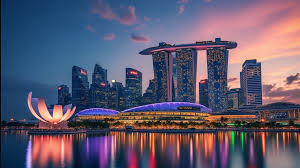
Key Takeaways
- Discover key elements that define modern luxury in real estate today.
- Learn about emerging trends that are shaping the luxury property market.
- Gain insights into how technology is influencing luxury real estate.
- Understand the role of sustainable practices in luxury development.
Introduction: Conceptualizing Luxury in Real Estate
Luxury real estate transcends mere opulence; it embodies a lifestyle, an experience, and a statement of sophistication. The notion of luxury in real estate has dramatically transformed over the years, encompassing grandiosity and high price points, as well as elements of personalization, sustainability, and cutting-edge technology. Today, as a Manhattan, NY real estate expert Bianca D’Alessio understands these evolving dynamics to deliver unique, client-focused experiences in luxury developments. In recent years, the definition of luxury has shifted from sheer size and cost to a more nuanced concept of value. Buyers now seek homes that reflect their lifestyle aspirations and preferences, demanding environments that offer exclusivity, personalized services, and integration with nature. Historically, luxury was synonymous with opulent finishes and expansive spaces, but the modern consumer values intelligent designs and sustainable practices.
Defining Modern Luxury in Real Estate
Modern luxury in real estate is defined by bespoke environments that offer unparalleled comfort, sophistication, and exclusivity. Essential features in today’s market include state-of-the-art technology, wellness facilities like personal gyms and spas, and premium security systems. Home automation systems are considered fundamental, enhancing convenience and control over the living environment. More than ever, luxury buyers prioritize these features, ensuring their homes reflect their unique tastes and provide an intimate sanctuary.
Moreover, luxury is increasingly about the experience offered by a property. Properties in prime locations offering scenic views or being immersed in nature hold particular appeal. Luxury real estate has expanded to recognize the importance of privacy, with features such as private elevators and secluded gardens becoming highly attractive.
Influences on Luxury Real Estate Trends
Cultural, economic, and environmental factors continuously reshape the luxury real estate market. In this ever-evolving landscape, adaptability and foresight are key for developers aiming to meet the burgeoning expectations of luxury homebuyers. Economic shifts, changing demographics, and technological advancements are prime influencers of prevailing trends. As noted in a comprehensive report on global real estate trends, the market’s dynamics are also significantly affected by international economic policies and the preferences of global buyers seeking secondary luxury homes. Current trends reflect a demand for health-oriented designs, such as spaces that promote well-being and mental health. Large windows for natural light, expansive gardens, and home offices are increasingly desired features, catering to a lifestyle that integrates living, working, and wellness in one flexible space.
Technology’s Role in Shaping Luxury Spaces
Technology has emerged as a defining element in luxury real estate, shaping the infrastructure and user experience. The smart home revolution is significant; advanced systems that control lighting, climate, and security, often through voice commands or mobile apps, have become essential. These technologies enhance living comfort and provide elevated levels of security and energy efficiency.
Moreover, technology has transformed the buying process itself. Virtual reality and online platforms have opened new avenues for global searches, allowing buyers to explore properties remotely. This virtual integration supports informed decision-making and broadens the scope for international buyers to engage with properties far from their physical locale.
Sustainability in Luxury Real Estate
An increasing demand from environmentally conscious clients drives a growing emphasis on sustainability within luxury real estate. Green building practices, from using renewable energy sources to eco-friendly materials, are no longer optional but expected. This shift is not just about reducing environmental impact; it reflects a profound change in how luxury is perceived, where opulence harmonizes with responsibility. Sustainability is woven into luxury fabric with innovations like solar panels, rainwater collection systems, and homes that maximize natural airflow and light. These aspects contribute to environmental preservation and appeal to buyers seeking long-term cost efficiencies and a harmonious living environment.
Designs and Architecture in the Luxury Sector
Contemporary luxury real estate is often characterized by architectural brilliance and distinct design elements. Current trends emphasize a seamless blend between indoor and outdoor spaces, natural materials, and open layouts that capitalize on light and views. A preference for minimalist and functional spaces reflecting simplicity and elegance is evident. Emerging designs aim to merge aesthetic appeal with functional innovation, an approach discussed in a news article on sustainable architecture trends. The emphasis on bespoke architecture addresses the buyer’s individual preferences, creating spaces that are as unique as their owners.
The Future of Luxury Real Estate
As the luxury real estate market looks to the future, it promises exciting opportunities and fresh challenges. The ongoing integration of augmented reality and AI in property showcases may redefine buying experiences further. Additionally, the increasing importance of health-oriented design and remote work accommodations will persist as standards rather than trends. Market shifts may come from unforeseen places, but industry experts, through strategic insight and preparation, stand ready to adapt. This adaptability and forward-thinking approach will ensure luxury real estate continues to cater to the ever-sophisticated tastes of its clientele.
Conclusion: Adapting to an Ever-Changing Market
In summary, the luxury real estate sector thrives on its capacity for change and modernization. As cultural and technological landscapes alter rapidly, professionals in this field must remain agile and innovative to maintain value and appeal in their offerings. Maintaining relevance in the industry requires a commitment to excellence, sustainability, and a profound understanding of evolving client desires, ensuring luxury properties continue to captivate and inspire discerning buyers.
also read: Tips To Select The Best Family Attorney
